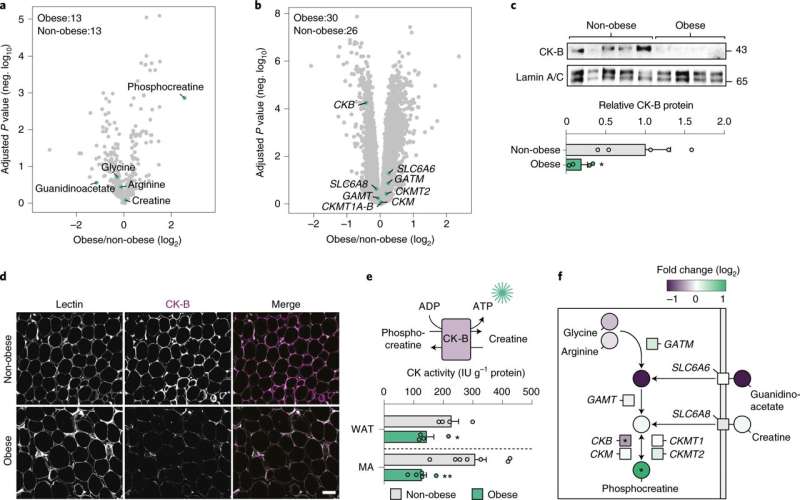
In a new study published in Nature Metabolism, KI researchers show how disturbances in the energy metabolism in human fat cells, can lead to the development of inflammation and insulin resistance.
Mikael Rydén’s and Niklas Mejhert’s group at the Department of Medicine, Huddinge, examines what drives the development of inflammation in adipose tissue in people with obesity. The study shows that weight gain leads to altered phosphocreatine / creatine metabolism, which evokes inflammation in the fat cells.
“We believe that the impaired metabolism of creatine in the fat cells leads to an “energy crisis” that causes the body to compensate by increasing glucose utilization. This stimulates the genes that lead to chronic inflammation in the body with an increased risk of insulin resistance,” says Dr. Salwan Maqdasy, one of the study’s first authors.
Fat cells may be the key to future treatments
The adipose tissue consists of many different cell types, and it hasn’t been completely clear which cell types are behind disturbed adipose tissue function in obesity and insulin resistance. Previous studies have mainly focused on the role of immune cells in adipose tissue, but anti-inflammatory treatments do not appear to have had any effect on the adipose tissue function. The findings from Mikael Rydén’s and Niklas Mejhert’s group, indicate that the fat cells themselves are the driving factor and that future treatments therefore should be directed at the fat cells instead.
Source: Read Full Article